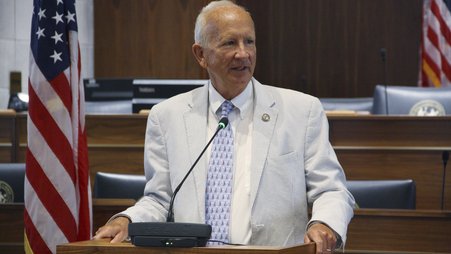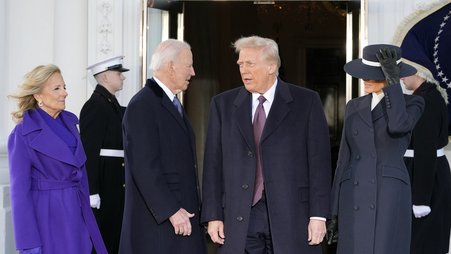
Senator Chris Murphy of Connecticut made the claim just after Inauguration Day: Biden is "making transparency cool again," presumably in comparison to four years of the Trump administration and its contemptuous approach to transparency in general and the press in particular.
But as we said in January, Biden's transparency record should be judged not by its stated ideals, but rather its real actions. As we come to the end of Sunshine Week — the long-running annual initiative focusing on government transparency — we're taking a look at how the first few months of the Biden administration have shaped up on that front.
No virtual visitor logs
This White House has committed to restoring the practice of releasing visitor logs, a practice which was started under the Obama administration and fully suspended under Trump (until a court order forced a partial disclosure). However, Biden will not release logs of "virtual visits," for meetings held over video, despite the fact that such meetings are more common than ever in the age of Covid. The White House's insistence that these meetings are analogous to phone calls (logs of which have not historically been disclosed) is unconvincing at a time when millions of Americans have replaced in-person meetings with virtual ones in the past year.
Turnabout from campaign promises on Khashoggi
On the campaign trail, candidate Biden promised tough action against Saudi Arabian leaders, and the crown prince Mohammed bin Salman in particular, for the brutal 2018 killing of Washington Post journalist Jamal Khashoggi. At the end of February, his administration released a report compiled (but initially suppressed) under the Trump administration, in which the broader United States intelligence community outlines how it concluded that the crown prince must have been aware of the plot to kill Khashoggi and likely personally authorized it.
Despite widespread calls for accountability, President Biden opted not to take any action against the crown prince, and has defended that position since.
New Attorney General pressed on FOIA
Merrick Garland is newly in charge at the Department of Justice after a confirmation process that only began in earnest a month into the new presidential term. Garland spoke in his confirmation hearing about the importance of the Freedom of Information Act, but the Justice Department has long been notorious for its attempts to stifle the vital transparency law.
Last week, the Reporters Committee for Freedom of the Press and the Knight First Amendment Institute at Columbia University sent a letter to Garland urging him to read that law "generously" and seize an "historic opportunity to restore transparency and trust in the government."
Assange appeal continuing, endangering publishers
Garland also inherited an active appeal on the case for Wikileaks publisher Julian Assange's extradition from the United Kingdom. Last month Freedom of the Press Foundation and two dozen press freedom and human rights groups urged the Department to drop those charges in the name of protecting press freedom. The Department has, concerningly,so far committed to continuing to pursue the case.
In the meantime, the implications of the case have not been diminished — in fact, a former member of the NSA’s legal team and current think tank fellow recently published an argument for Biden continuing the case, specifically because it would make prosecuting journalists and publishers easier.
No press conferences — yet
Biden has not yet held a public news conference as president, marking the longest wait to do so in modern presidential history. After public blowback, Biden is now scheduled to hold a press conference next week on March 25.
His White House has however restored the daily briefings with the administration's press secretary, a practice which had fallen off under Trump. In the first of those daily briefings, Press Secretary Jen Psaki assured the assembled reporters that she had “deep respect for the role of a free and independent press” — now more than halfway through his administration’s first 100 days, it’s time to see action to support that claim.




